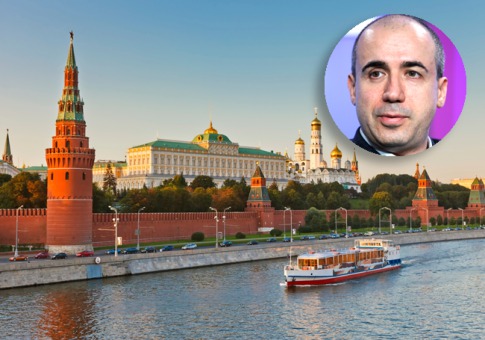When the U.S. economy was riding high for most of the 20th century, it would have been impossible to imagine a foreign city--especially one in a Communist country--with more of the planet's very richest than New York, home of old-money Wall Street. But that indeed is the case. Today Moscow is the city with the most billionaire residents in the world.
The Russian capital boasts 79 billionaires, a stunning increase of 21 in just one year. That more than edges out No. 2 New York, with 59 billionaires, and No. 3 London with 41. Other cities in the top 15 include such rising stars as Mumbai, Taipei, Sao Paolo and Istanbul. Los Angeles manages a tie for No. 8.
The combined fortunes of Moscow's billionaire population top $375 billion, more privately amassed wealth than in any other city in the world.
In Pictures: Billionaire Cities Despite New York's relegation to second place, the city remains a favored locale of billionaires, whose collective net worth is $221 billion. The Big Apple boasts some of the most expensive ZIP codes in the U.S., due in part to the real estate prices paid by billionaires in this city. Indeed, many Moscow residents own secondary homes in New York, including fertilizer and coal magnate Andrey Melnichenko, whose wife recently closed on a $12.2 million penthouse apartment. Even the world's richest man, Carlos Slim (home: Mexico City), snatched up a $44 million mansion on Central Park last year.
To compile our list, we tallied the primary residences of all 1,210 billionaires on the 2011 Forbes World's Billionaires list, our annual assessment of people sporting seven-figure or higher fortunes in U.S. dollars. We did not take secondary homes into account for this list.
In the U.S. we stuck strictly to city limits. For example, while a smattering of prominent media barons like Viacom founder Sumner Redstone and T.V. tycoon Haim Saban reside in Beverly Hills, they are not included in the pile of Los Angeles residents since Beverly Hills is its own city (although largely surrounded by Los Angeles).
Here are the the world's five top cities for billionaires:
 |
Istanbul, Turkey scores No. 5.
Photo: Thinkstock |
No. 5: Istanbul
Number of Billionaires: 36
Total combined wealth: $60.5 billion
Billionaires include: Turkey's richest person, Mehmet Emin Karamehmet, chairman of mobile phone company Turkcell; Turkey's former richest, finance and retail scion, Husnu Ozyegin; and Macedonian-born Sarik Tara, founder of construction giant, ENKA.
 |
Hong Kong scores No. 4.
Photo: Thinkstock |
No. 4: Hong Kong
Number of Billionaires: 40
Total combined wealth: $176.8 billion
Billionaires include: Greater China's richest person, Hutchison Whampoa chairman Li Ka-shing; the Kwok family, the brothers behind Hong Kong's largest real estate developer, SHKP; and Angela Leong, the controversial heiress of Stanley Ho's casino empire.
 |
London scores No. 3.
Photo: Thinkstock |
No. 3: London
Number of Billionaires: 41
Total combined wealth: $164.3 billion
Billionaires include: Indian citizen Lakshmi Mittal, the world's sixth-richest man thanks to steel-maker ArcelorMittal; daredevil Virgin founder Richard Branson; and Philip & Christina Green, the married couple behind clothing company Topshop.
 |
New York City scores No. 2.
Photo: Thinkstock |
No. 2: New York
Number of Billionaires: 59
Total combined wealth: $220.8 billion
Billionaires include: media mogul and current mayor Michael Bloomberg; fashion designer Ralph Lauren; and real estate developer-turned-reality T.V. celebrity Donald Trump.
 |
Moscow scores No. 1.
Photo: Thinkstock |
No. 1: Moscow
Number of Billionaires: 79
Total combined wealth: $375.3 billion
Billionaires include: Russia's richest man, steel magnate Vladmimir Lisin; commodities investor and Chelsea soccer team owner Roman Abramovich; and venture capitalist and Facebook investor Yuri Milner.
 In the forex market, you buy or sell currencies.
In the forex market, you buy or sell currencies. 






